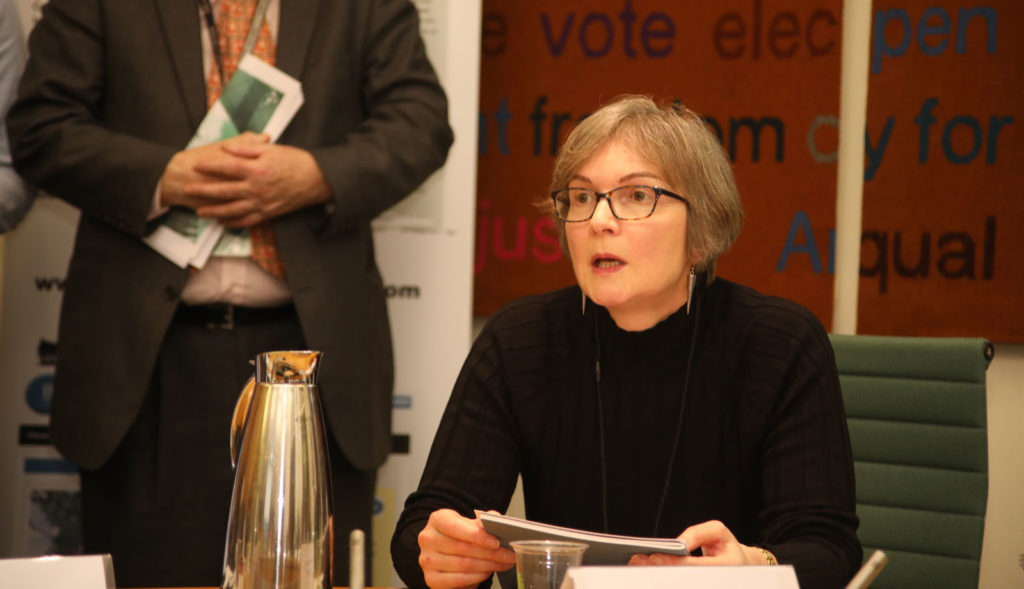
By Sebastian O’Kelly
Propriety is a word associated with correct behaviour that readers encounter in Jane Austen novels, suggesting conformity to conventionally accepted standards of behaviour.
In consequence, it is largely absent in wrangles over leasehold law.
But the Oxford law professor Susan Bright deployed it in the most intriguing speech of the APPG last Thursday, to urge improvements in ethical behaviour in the residential property sector, particularly leasehold.
“I think we need to start asking some big questions about property law. Should home buyers be given consumer rights? Who should hold the controlling powers in blocks of flats?
“Can we create a system where property is understood to be based on propriety: that those who hold property should exercise rights and powers with a sense of decency and rightness?”
Professor Bright was encouraged that Law Commission – even in the diluted language of its enfranchisement report – and officials at the MHCLG are asking questions that address these wider societal issues.
“But I think is all rather patchy. I think there is a need for a more holistic view.”
This appeal for wider and deeper thinking was proceeded by Professor Bright’s comments on immediate issues at hand.
“It is clear that what began as a cladding scandal has now spread and has exposed wide-ranging failures in fire safety and construction. These demonstrate that there has been a systemic and regulatory failure.
“So we have ineffective building control regulations, unaccountable inspectors and lack of clarity in building regulations and guidance. These have lead to the infamous Advice Notice 14 that everybody is talking about
“There has been an inadequate and weak response from the government today leaving many existing buildings unsafe.
“And I have argued elsewhere that this constitutes a breach in the government’s duty to protect life under article 2 of the European Convention on Human Rights.”
A possible remedy, she argued, was to follow the example of the state of Victoria in Australia, where financial assistance is made available to building owners, whose rights are subjugated.
Once the building is fixed the government can go after the developers for compensation.
Professor Bright addressed the wider discontent of leaseholders, regretting their purchases, unhappy in their homes as they realise the consequences of purchasing a long-term tenancy where the building’s owner – who may have paid only 1-3% of the building’s capital value to obtain the freehold, as LKP continually points out – makes all the decisions.
Professor Bright added: “We have a dispute resolution system, but on the whole it is stacked against leaseholders.”
But she added that sometimes ethical freeholders wanting to do the right thing are also thwarted.
She gave the example of the recent property tribunal case where Wandsworth council was prevented from retro-fitting fire sprinklers in 100 blocks of flats because separate lease conditions apply.
The speech was perhaps more interesting in the questions that it raised, than in the answers given.





 Government’s approach to cladding crisis has been to duck the blame, says engineer who was shown the door by officials
Government’s approach to cladding crisis has been to duck the blame, says engineer who was shown the door by officials





















